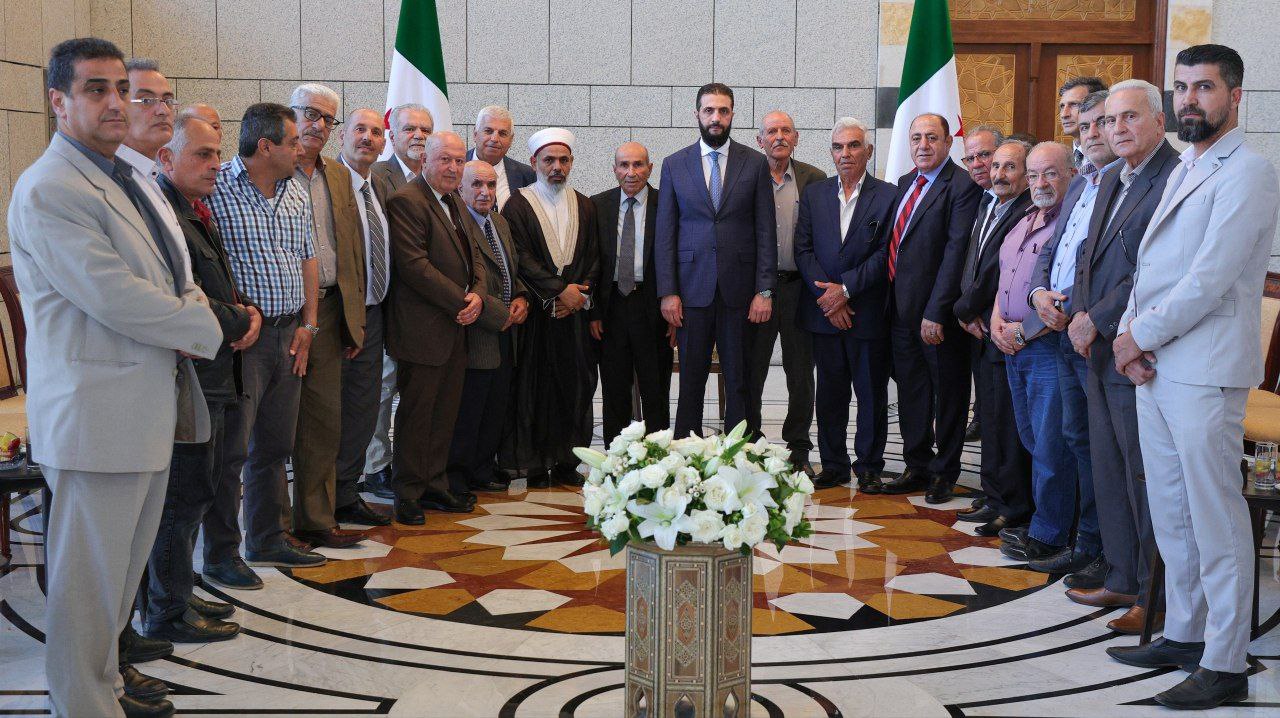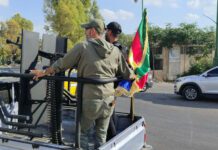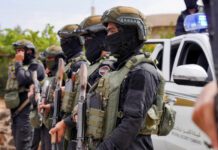
A dramatic escalation of unrest in Syria’s southern Suwayda Governorate has exposed the limits of government outreach, with internal divisions, armed lawlessness and foreign interference stalling integration efforts and threatening national unity.
Months of Diplomacy
Earlier this month, Suwayda Governor Mustafa al-Bakour met with Suwayda’s political and community representatives, pledging support for political solutions, economic revival and security coordination. Damascus backed a three-phase stabilization proposal from local leaders, including security reinforcement, administrative reforms, and national dialogue. The plan also called for integrating Suwayda’s armed factions into state security structures and restoring judicial authority.
Despite the efforts of this past month, which built upon previous memorandums of understanding between the governorate’s notables and President Ahmad al-Sharaa, the implementation has faced strong headwinds.
Deliberate Acts of Political Violence
Just days before the implementation of agreements, on May 21, an armed group stormed the Suwayda Governorate building, brandishing weapons at Governor Bakour and employees, demanding the release of a convicted car thief.
According to the Ministry of Defense’s public relations director, Ali al-Rifai, the group acted under the leadership of Fadi Nasr and Tariq al-Maghoush. Under duress, the convict was released. The assailants then fled with the help of nationalist factions, who sought to prevent further escalation.
Bakour, who had championed dialogue and institutional reform, resigned on May 23. His resignation followed months of mounting tension and repeated efforts to restore order, according to statements issued by Suwayda’s media office.
The Specter of Secession and Foreign Intervention
The incident triggered widespread condemnation from community leaders. Sheikh Hamoud al-Hanawi, one of Suwayda’s top Druze religious authorities, called the attack “absolutely unacceptable,” emphasizing support for the unity of Syria and urging restraint. He denied any aspirations for secession, warning against foreign powers seeking to stoke division.
However, while the majority in the province support full integration with the current government, foreign interference remains a volatile factor. Some factions, such as those aligned with Sheikh Hikmat al-Hijri, have voiced support for decentralization and international intervention.
Hijri has publicly stated that “Israel is not the enemy,” a view starkly opposed by the broader Druze leadership. Analysts, including Charles Lister, describe Israel’s strategy in Suwayda as a “campaign of 1,000 cuts,” aimed at destabilizing Syria by co-opting border communities.
The fallout from the governor’s forced resignation has intensified calls from local groups, including the Civil Gathering for Syria, to uphold state sovereignty and restore judicial authority. Nationalist factions, including the Men of Dignity and the Mountain Brigade, have since assumed auxiliary security roles alongside judicial police under a new agreement reached in early May.
A Province On the Brink
Although Damascus and most political, civil and military factions in Suwayda are poised to cooperate the environment remains precarious. Armed groups continue to operate beyond state control, jeopardizing efforts to stabilize the area. Civilians bear the brunt—facing stalled services, disrupted trade, and declining economic prospects.
While the government and local actors insist on maintaining Syria’s territorial unity, deep mistrust, unresolved grievances, and foreign manipulation continue to hinder lasting peace in Suwayda. Without broad-based cooperation and credible enforcement of law and order, the road to national reconciliation remains uncertain.








